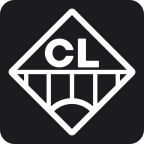On November 21, Ocean Insight, an American photonic technology company, announced that it had bought laser induced breakdown spectroscopy (LIBS) technology from Rigaku, a Japanese analytical equipment company, to expand its market portfolio of analytical products.

Image source: Ocean Insight
At present, consumers' demand for aluminum products is growing every year. Combined with the new SpeedSorterTM high-speed aluminum sorting technology based on laser induced breakdown spectroscopy (LIBS) and Rigaku Analytical Devices - handheld LIBS devices, Ocean Insight customers have increased flexibility in evaluating aluminum regardless of the environment or alloy grade.
The benefits in this respect include: improving the ability of Ocean Insight to determine the chemical composition of each piece of waste aluminum in the operation process, and then classifying it into different types, which can be melted and recycled.
"The energy efficiency of recycling waste aluminum is 95% higher than that of producing new aluminum. This means smaller carbon footprint and lower cost for manufacturers and consumers," said Dr. Michael Edwards, President of Ocean Insight
This LIBS handheld device is portable, stable and reliable, and its battery life can last all day. It is very suitable for use in waste recycling sites around the world, such as scanning and monitoring the input materials.
The principle of non-destructive LIBS technology is that when the laser is aimed at the target material, a small area of plasma will be generated. This technology can analyze the light emitted by the plasma spectrum, and then reveal which elements are present and their quantities.
At present, this method has been applied in a variety of applications and environments, such as analyzing the pigments used in art works, diagnosing skin cancer, and checking the mineral content of Martian rocks in the "ChemCam" camera instrument carried by NASA's Curiosity Mars Probe.
Rigaku is one of several instrument companies that have introduced handheld LIBS technology. Other key players include Bruker, Oxford Instruments, SciAps, B&W Tek and TSI.
Ocean Insight's existing LIBS sorting technology has also recently been successfully shortlisted for the "Prism Award" of SPIE Photonics West. The sorting technology is in the form of 28kg desktop unit, equipped with red and infrared lasers, and can analyze a variety of metals, including aluminum.
Source: OFweek








